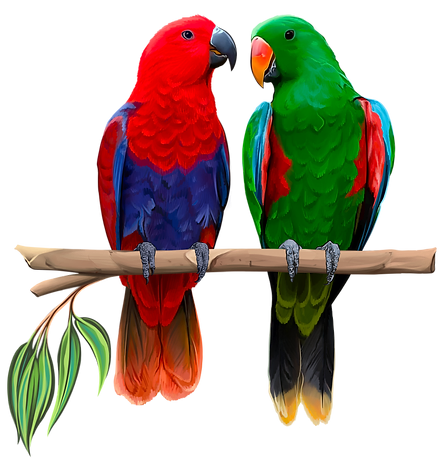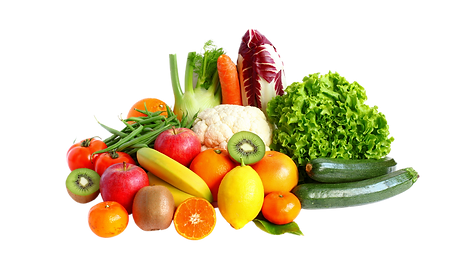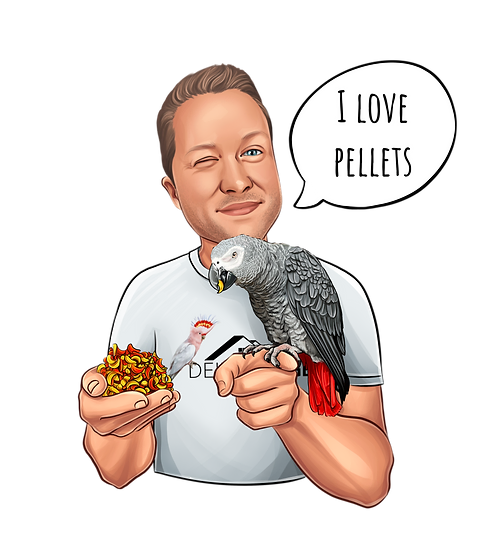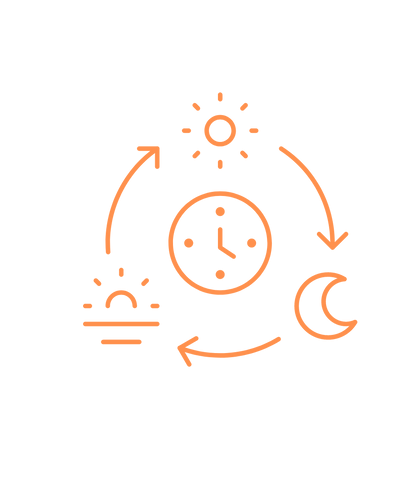
Gradually get your birds used to the new food by creating new feeding spots next to their familiar ones. This piques their interest and they begin to accept the new pellets and also lose any fear they may have of this new food.
Refresh the pellets regularly to keep them fresh. If they get dirty or even wet, replace them immediately with fresh ones.
Place new feeder bowls in your birds’ favorite spots. Right where they hang out most of the time and fill them with our extruded pellets.

Reduce their usual food to a minimum to ensure they are still eating enough. YOUR PARROT must be confronted with the new pellets every day. In the evening, always remove the seeds and gradually place the pellets in the usual feeding place.

MY FAVOURITE
Feed early in the morning (6:30-8:00 a.m.) a varied mix of fruit and vegetables with our Vital Pellets, without seeds.
Remove the fresh food at midday between 12-1 p.m. Your bird will be hungry and will get used to the pellets as their main diet (don’t worry, healthy birds can easily go without their food for up to 48 hours). Likewise, he accepts a fresh meal in the morning. If your bird still refuses any pellets, give it a chance to eat some of its seeds at midday.
Always pay attention to the nutritional status of your birds and work with patience. Parrots can be stubborn but need some consistency from the owner. Parrots in particular are like small children who are always looking for the opportunity to eat whatever they feel like. in most cases in children this is chocolate. With your parrots, the sunflower seed is the chocolate that he wants to get back by any means necessary.

Stay routined and get your birds used to fixed feeding times. The conversion can take a few days to several weeks. But it’s worth it!
Before you eliminate all seeds from the diet, your birds need to consume an adequate amount of pellets. A slight weight loss of up to 10% of body weight is normal as pellets have a far lower fat content than sunflower seeds or nuts. Once your birds have accepted a purely pellet-based diet, the consistency of their droppings may change as well. Usually this becomes much softer and more fluid. This is absolutely fine. If your bird is puffy or lethargic, contact your vet immediately.
